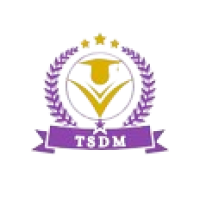Table of Contents
ToggleIntroduction :-What Is Off Page And On Page SEO :
In the realm of digital marketing, Search Engine Optimization (SEO) serves as a crucial tool for businesses striving to enhance their online visibility and attract organic traffic to their websites. Breaking down the intricate concept of SEO into two primary components—What Is Off Page And On Page SEO :—can facilitate a clearer understanding of its intricacies and strategies.
On-Page SEO: Laying the Foundation
On-Page SEO encompasses optimization efforts directly implemented on the website itself to improve its rankings on search engine results pages (SERPs). It serves as the bedrock of digital presence, allowing complete control over the content and structure of the site. Key elements of On-Page SEO include:
1. Content Quality
The cornerstone of On-Page SEO lies in the creation of high-quality content that resonates with the target audience. Valuable, relevant, and engaging content not only attracts users but also garners favor with search engine algorithms, leading to improved rankings.
2. Keyword Optimization
Strategically integrating relevant keywords throughout the website’s content aids search engines in understanding the context and relevance of each page. Conducting thorough keyword research enables the seamless incorporation of these terms into titles, headings, meta descriptions, and body content.
3. User Experience (UX)
A seamless user experience is imperative for both visitors and search engines. Optimizing website elements such as mobile responsiveness, loading speed, and navigation enhances user engagement and encourages prolonged dwell times, signaling quality to search engine algorithms.
Off-Page SEO: Establishing Authority and Trust
Off-Page SEO focuses on activities conducted outside of the website to bolster its reputation, authority, and relevance in the eyes of search engines. Though control over these factors is indirect, they significantly influence search rankings. Key strategies include:
1. Link Building
Earning backlinks from reputable and relevant websites is a potent method for enhancing a site’s authority. Engaging in guest blogging, influencer outreach, and creating shareable content are effective tactics for attracting inbound links.
2. Social Media Engagement
While social media signals themselves may not directly impact search rankings, active engagement on platforms like Facebook, Twitter, and LinkedIn amplifies content reach and drives traffic to the website. Regular sharing, interaction with followers, and encouraging social sharing contribute to increased online visibility.
3. Online Reputation Management
Maintaining a positive online reputation is crucial for building trust with users and search engines alike. Encouraging satisfied customers to leave reviews, promptly addressing negative feedback, and consistently upholding a stellar reputation across all online channels are essential practices.
Crafting Effective SEO Strategies: A Dynamic Process
In the dynamic landscape of SEO, there is no universal solution. The efficacy of strategies depends on various factors such as industry, target audience, competition, and evolving search engine algorithms. Continuous monitoring of website performance, staying abreast of industry trends, and adapting strategies accordingly are vital for long-term success.
By implementing a holistic approach that combines effective SEO tactics, businesses can establish a robust online presence, improve search engine rankings, and drive organic traffic to their websites. Ultimately, SEO is about delivering value to the audience and fostering meaningful connections that resonate in the digital sphere.

